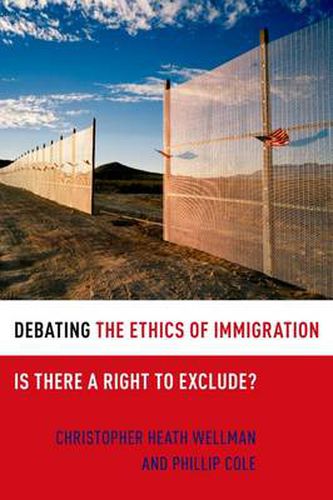Readings Newsletter
Become a Readings Member to make your shopping experience even easier.
Sign in or sign up for free!
You’re not far away from qualifying for FREE standard shipping within Australia
You’ve qualified for FREE standard shipping within Australia
The cart is loading…






Do states have the right to prevent potential immigrants from crossing their borders, or should people have the freedom to migrate and settle wherever they wish? Christopher Heath Wellman and Phillip Cole develop and defend opposing answers to this timely and important question. Appealing to the right to freedom of association, Wellman contends that legitimate states have broad discretion to exclude potential immigrants, even those who desperately seek to enter. Against this, Cole argues that the commitment to the moral equality of all human beings - which legitimate states can be expected to hold - means national borders must be open: equal respect requires equal access, both to territory and membership; and that the idea of open borders is less radical than it seems when we consider how many territorial and community boundaries have this open nature. In addition to engaging with each other’s arguments, Wellman and Cole address a range of central questions and prominent positions on this topic. The authors therefore provide a critical overview of the major contributions to the ethics of migration, as well as developing original, provocative positions of their own.
$9.00 standard shipping within Australia
FREE standard shipping within Australia for orders over $100.00
Express & International shipping calculated at checkout
Do states have the right to prevent potential immigrants from crossing their borders, or should people have the freedom to migrate and settle wherever they wish? Christopher Heath Wellman and Phillip Cole develop and defend opposing answers to this timely and important question. Appealing to the right to freedom of association, Wellman contends that legitimate states have broad discretion to exclude potential immigrants, even those who desperately seek to enter. Against this, Cole argues that the commitment to the moral equality of all human beings - which legitimate states can be expected to hold - means national borders must be open: equal respect requires equal access, both to territory and membership; and that the idea of open borders is less radical than it seems when we consider how many territorial and community boundaries have this open nature. In addition to engaging with each other’s arguments, Wellman and Cole address a range of central questions and prominent positions on this topic. The authors therefore provide a critical overview of the major contributions to the ethics of migration, as well as developing original, provocative positions of their own.